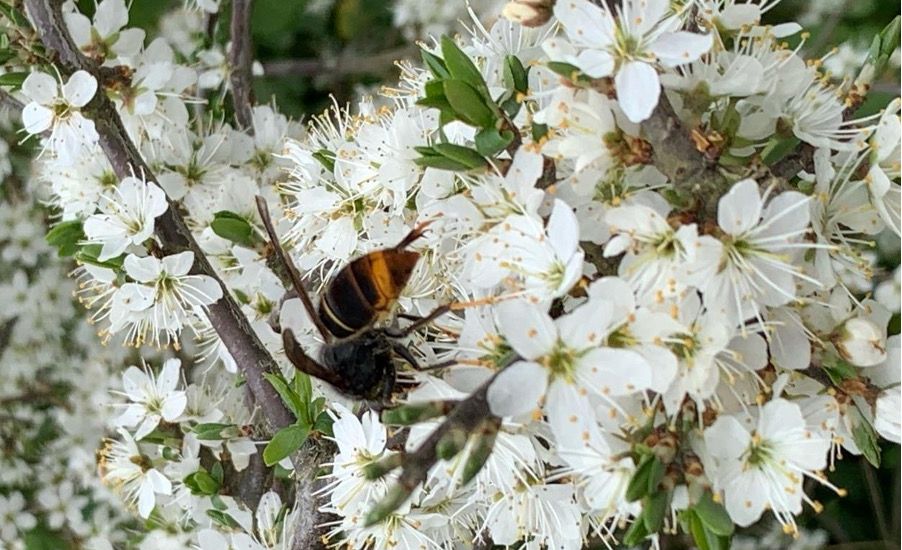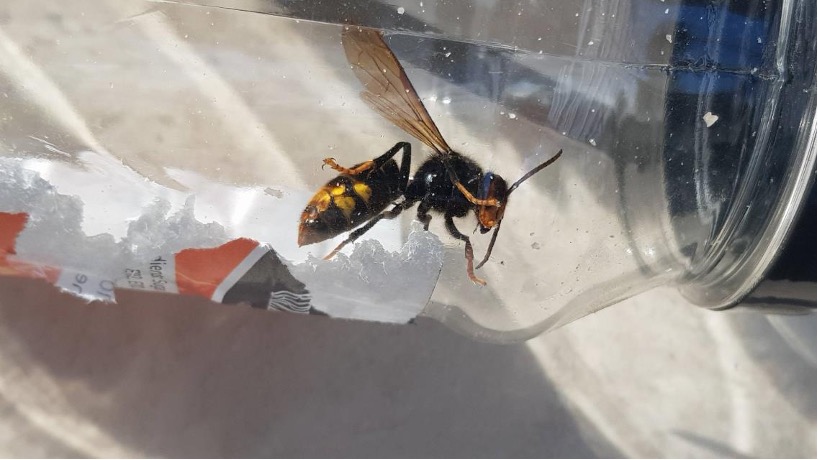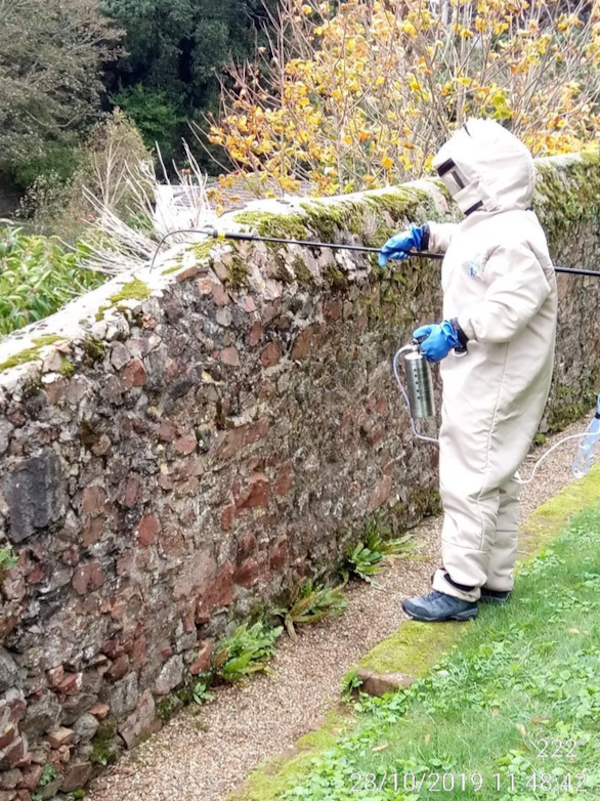

The spring brings with it a fresh warning that people must be vigilant in identifying Queen hornets, as the "voracious predators" will become "virtually impossible to eradicate" from the islands if allowed to reproduce.
The Asian Hornet Team has launched its “Spring Queening” initiative for the third year running, in order to catch any remaining Queens emerging from hibernation or travelling over on favourable winds from France.
"Queen hornets live in isolation for a few weeks in spring which makes them easier to capture because they have to forage for food," said the strategy team.
"Trapping these queen hornets is the main priority to prevent them raising the next generation of worker hornets which would otherwise go on to build huge nests.
"Without a coordinated control programme, that Asian hornets would certainly become very quickly established. If this were to happen it would then be virtually impossible to eradicate them."

Pictured: "Queen hornets have a habit of turning up in kitchens so it is important to not let these insects escape if you do suspect it could be a hornet. Most likely, it will be a harmless queen wasp, but it is always a possibility."
If they are not treated and removed, these secondary nests expand rapidly during August to September and can hold up to 5,000 hornets. When undetected or left uncontrolled, Asian hornets "may present an increased risk to the public" as well as causing significant harm to our native insect populations as they are a voracious predator.
The Asian hornet team have been contacting landowners and householders across the island asking them to take part in the “Spring Queening” programme.
In total, 270 specially modified traps have been set up in gardens, hedges and fields as part of the comprehensive island-wide programme to trap queen Asian hornets which have recently emerged from hibernation.
Each volunteer received a trapping kit with full instructions on how to set up the trap and what to do if they catch an Asian hornet.

Pictured: The first recorded sighting of an Asian hornet in Guernsey came in March 2017. In that year two nests were located and destroyed. In the following years, the number of Asian hornet nests increased to 8 in 2018 before decreasing to two in 2019 following the introduction of the Asian hornet strategy. In 2020, no nests detected, although some individual hornets were.
Project Coordinator Francis Russell said the first confirmed sighting of an Asian hornet on Sark for 2021 is "a timely reminder for islanders to remain vigilant" and report any potential sightings swiftly.
“Every year we have noticed that queen hornets have a habit of turning up in kitchens so it is important to not let these insects escape if you do suspect it could be a hornet. Most likely, it will be a harmless queen wasp, but it is always a possibility.
“I would also ask people to check their outbuildings, sheds, verandas and porches to look for any of the early queen’s nests – pale brown and not much bigger than a golf ball.”
If you think you have discovered an Asian hornet, try to safely contain it so it cannot escape outside, take a photograph and email it to asianhornet@gov.gg for confirmation, or call 07839 197082.
Pictured top: A queen Asian hornet photographed in Sark on Easter Monday.
Comments
Comments on this story express the views of the commentator only, not Bailiwick Publishing. We are unable to guarantee the accuracy of any of those comments.